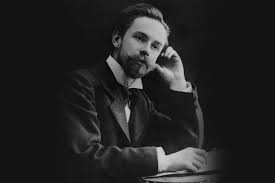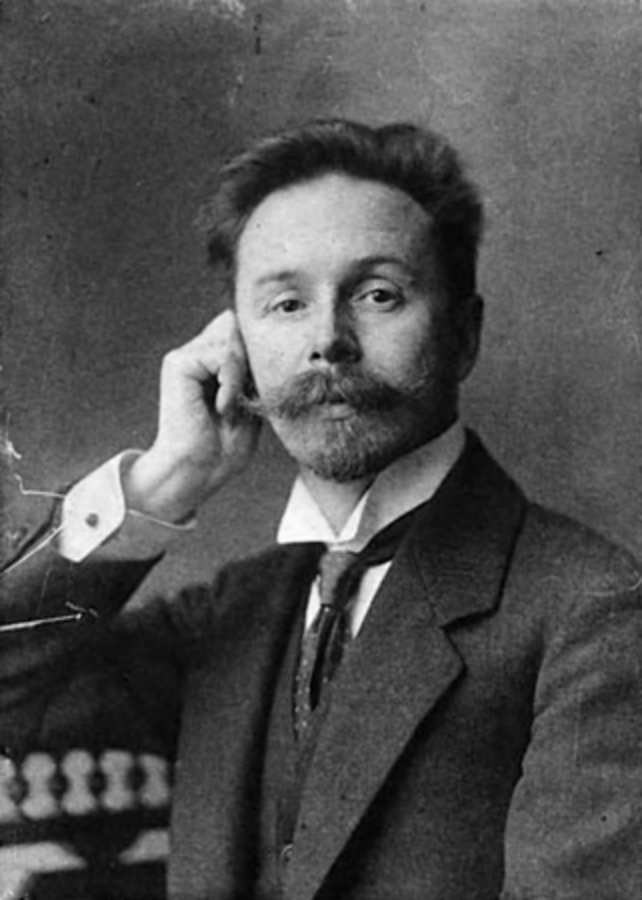Alexander Scriabin was a Russian composer and pianist whose innovative and visionary works left an indelible mark on the landscape of classical music. Born on January 6, 1872, in Moscow, Scriabin displayed prodigious musical talent from a young age. He began studying piano and music theory at the Moscow Conservatory at the age of eleven, where he quickly distinguished himself as a brilliant student.
Scriabin’s early compositions were influenced by the Romantic tradition, particularly the works of Frédéric Chopin and Franz Liszt. However, as he matured as a composer, he began to develop his own unique style, characterized by lush harmonies, complex rhythms, and a highly expressive use of chromaticism.
One of Scriabin’s most significant contributions to music was his development of the “mystic chord,” a highly dissonant chord consisting of stacked intervals of fourths and augmented fourths. This chord became a central element in many of his later compositions and reflected his interest in mysticism and the esoteric.
Throughout his life, Scriabin was deeply interested in philosophy, religion, and the occult, and these interests often found expression in his music. He envisioned his compositions as part of a grand cosmic drama, with each piece representing a step on the path to spiritual enlightenment.
One of Scriabin’s most ambitious works is his Symphony No. 3, subtitled “The Divine Poem.” This sprawling symphony, written for orchestra, chorus, and soloists, is a vast and mystical exploration of the nature of existence, incorporating elements of Wagnerian opera and Russian Orthodox liturgical music.
In addition to his symphonic works, Scriabin was also a prolific composer of piano music. His ten piano sonatas, in particular, are considered masterpieces of the genre, showcasing his technical brilliance and inventive approach to harmony and form.
Tragically, Scriabin’s life was cut short by illness. He died of septicemia at the age of 43 on April 27, 1915, in Moscow. Despite his relatively short life, Scriabin’s influence on the course of classical music was profound, and his works continue to captivate and inspire audiences to this day.


Comments are closed